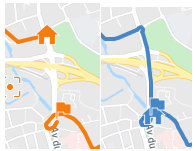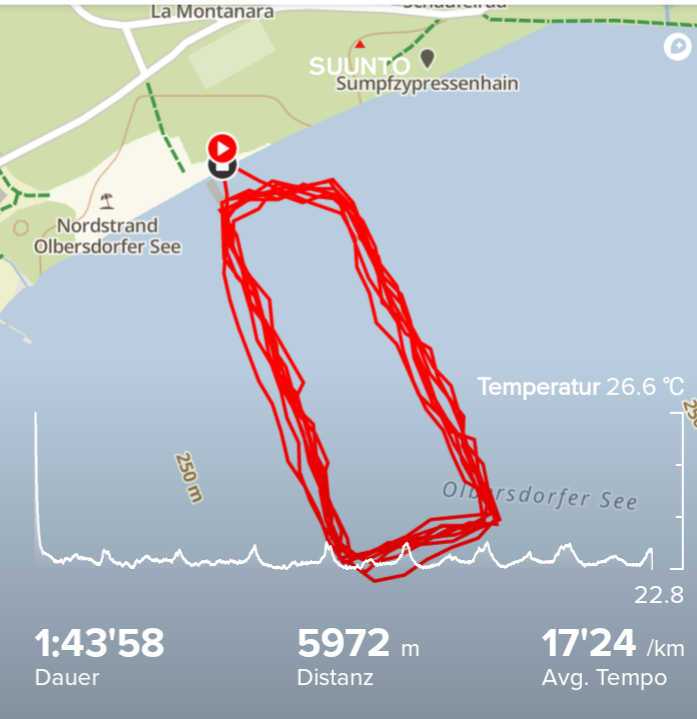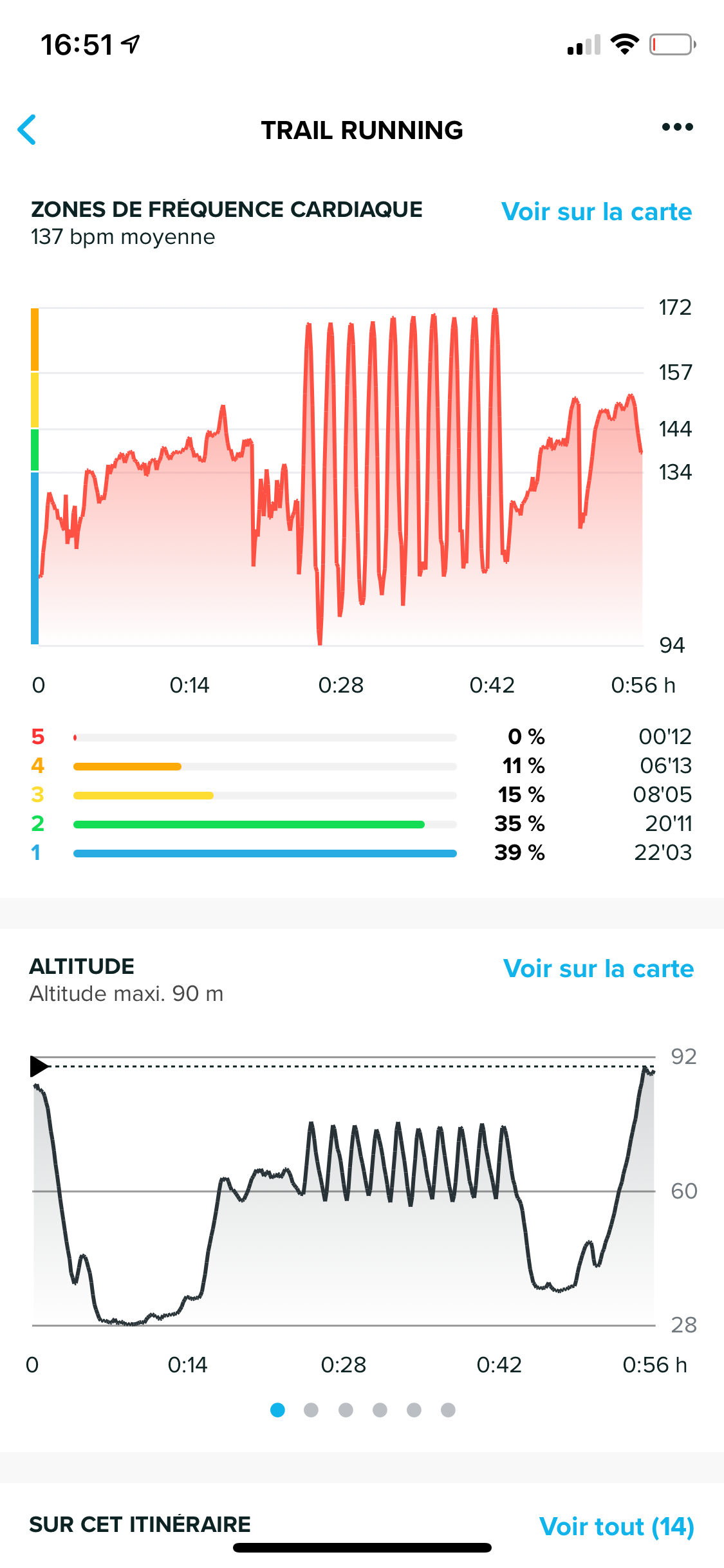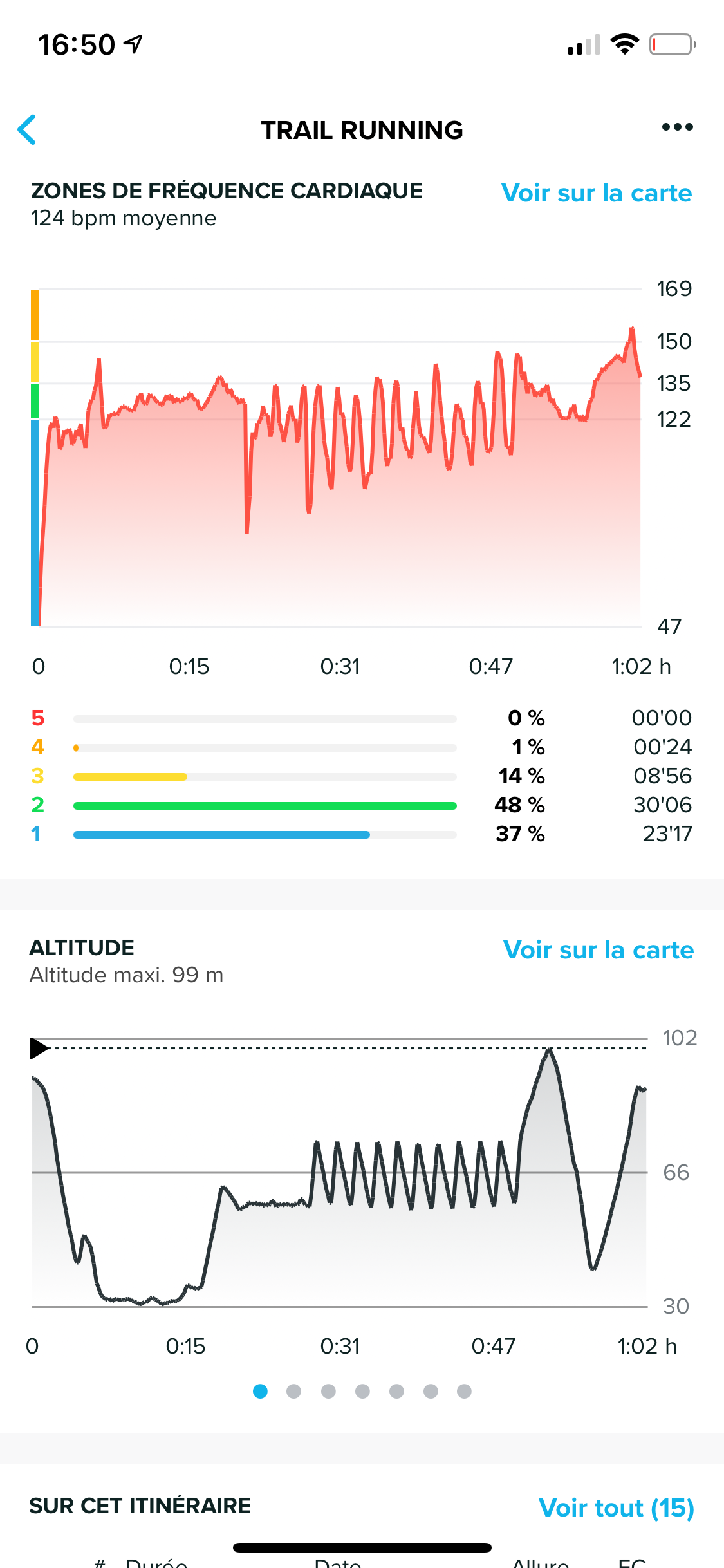Real world data
-
@andré-faria Kudos for your ride and thank you for new data, I know that elevation is a neverending discussion subject, on measure and map processing concerns. Even a basic route gpx file can have different total ascent in SA, GCConnect and Strava route
Here is the merge of your two files (the X-offset is due to an offset of the starting point in QS)

S9P 316m ascent seems to be consistent for your loop.Considering the terrain where you performed your ride today, it is obvious that Garmin’s elevation is overrated towards the end, because yout took the same road for your first and last 7 kilometers !
the elevation pattern of Suunto is very consistent between the start and the end (although I should have reversed the curves)

whereas the Garmin pattern for the start/end path is really out of scope !

There is no need to discuss about that, the altitude should be the same for the first and the last kilometers, and Suunto shows a perfect consitency for that. Garmin overrated the elevation by almost 50% (confirmed by the route of your ride in Garmin Connect which was estimated to 335m elevation)
P.S.1 in QS @Dimitrios-Kanellopoulos I have a question in the import of Gpx files produced by GarminConnect : the starting point in QS is not the same as in the Garmin activity
 , as if the first points were not imported (for the SA activity merged at the right it is ok :
, as if the first points were not imported (for the SA activity merged at the right it is ok :

P.S.2 : another recent proof of Suunto barometer reliability :
Maybe did you hear about on the 24h elevation record attempt in June 5th by French athlete Matthis Granet ? 16632 m in 24h (mesured by a surveyor)
Suunto was 15677m, so 5-6% less -
@chrisc92 said in Real world data:
@andré-faria Kudos for your ride and thank you for new data, I know that elevation is a neverending discussion subject, on measure and map processing concerns. Even a basic route gpx file can have different total ascent in SA, GCConnect and Strava route
Here is the merge of your two files (the X-offset is due to an offset of the starting point in QS)

S9P 316m ascent seems to be consistent for your loop.Considering the terrain where you performed your ride today, it is obvious that Garmin’s elevation is overrated towards the end, because yout took the same road for your first and last 7 kilometers !
the elevation pattern of Suunto is very consistent between the start and the end (although I should have reversed the curves)

whereas the Garmin pattern for the start/end path is really out of scope !

There is no need to discuss about that, the altitude should be the same for the first and the last kilometers, and Suunto shows a perfect consitency for that. Garmin overrated the elevation by almost 50% (confirmed by the route of your ride in Garmin Connect which was estimated to 335m elevation)
P.S.1 in QS @Dimitrios-Kanellopoulos I have a question in the import of Gpx files produced by GarminConnect : the starting point in QS is not the same as in the Garmin activity
 , as if the first points were not imported (for the SA activity merged at the right it is ok :
, as if the first points were not imported (for the SA activity merged at the right it is ok :

P.S.2 : another recent proof of Suunto barometer reliability :
Maybe did you hear about on the 24h elevation record attempt in June 5th by French athlete Matthis Granet ? 16632 m in 24h (mesured by a surveyor)
Suunto was 15677m, so 5-6% lessThanks a lot for doing this comparison.
Regarding initial point on Garmin, almost every device from Garmin I had (fenix 6s sapphire, fr245) had that issue. Only fr45 was more or less ok. I think it is very difficult to catch gps due to the buildings. But the edge said “gps ok” ahah -
O-See Open Water Race 5600m XTERRA, 8x700m, GPS+QZSS, the deviation of about 5% is ok, because I did not swim very straight.

-
@andré-faria said in Real world data:
Thanks a lot for doing this comparison.
Regarding initial point on Garmin, almost every device from Garmin I had (fenix 6s sapphire, fr245) had that issue. Only fr45 was more or less ok. I think it is very difficult to catch gps due to the buildings. But the edge said “gps ok” ahahNo it was not a garmin issue since the Garmin Connect is Ok just a small glitch in the comparison tool QS

GPS trace S9P and Garmin are very clode juste elevation is bad for garmin. -
second week S9P optical HR comparison

very good results today, the OHR is very reactive in pace change.Good positioning on the wrist, medium tightening, everything compared very well with belt strap despite sweat.
To avoid the “starting peak” I noticed on my previous test, as my run starts with an hill this can be misinterpreted by the firmware, I selected my activity 2 min before running (this is also good for GPS fixing)Only 2 small +10 peaks (1min), maybe I pushed the center button to heavily to navigate between displays
This curve is very promising and i think I will entirely rely onthe OHR in a few weeks -
@chrisc92 keep in mind that Garmin connect has HUGE lines for tracks. Also snap to road exists check that it’s not checked.
Qs does nothing than to show the data. However a glitch can exist in the fit export although I doubt it if not modified by some source even Garmin connect.
-
@dimitrios-kanellopoulos I noticed several times, garmin imported routes add an offset in QS because of missing imported points. (same file imported in SA shows the good starting point)
-
@chrisc92 do you have an example for me ?
-
the QS merge of initial data from @André-Faria saved as GPX routes
-
Garmin 530 https://connect.garmin.com/modern/activity/7030987942 (458m ascent) saved as a GC route
-
Suunto S9P https://www.suunto.com/en-be/move/andrfaria640/60d8a12f1c6b0f5222d3db2a (316m ascent) saved as a SA route
-
-
@chrisc92 I think its the save as route. Using the original files this should not be an issue.
Just for the sake of it, QS just reads the points. If there is a glitch that should come from the source of it.
-
@dimitrios-kanellopoulos maybe you know how to export a gpx from SA or GC someone else activity ? I could just save the activity as routes.
So I imported The Garmin route in SA in this gpx file where I do not see the glitch.
then in QS import SA route GPX into QS is ok
but import Garmin route GPX into QS has a glitch
so the translation of Garmin GPX by SA went Ok.
Gpx is a very simple xml text file with lines of GPS and elev data<rtept lat=“50.652588” lon=“3.0599594”><ele>23.4</ele>
I don’t understand how the first lines are not displayed when direct import from Garmin i will try to search for a gpx comparison tool
-
@chrisc92 I see the issue. You are right.
-
to compare, here are two similar short uphill sessions in the same spot with S9P
the first one with the HR belt
the second with the OHR
it is clear that with the OHR the frequency does not rise.
i say that the effort is about 30-35 seconds and that the recovery was very slow.

-
Does anyone have any examples or comparisons for walking / Hiking / trekking with HR Belt and OHR, for me personally that is the most likely activity type / scenario I would use the OHR rather than the belt. I would almost always use a belt when undertaking any other activity.
I currently have the S9B and the OHR for walking is terrible so would be very interested to understand how the peak’s OHR performs.
Many Thanks -
@t1sugar I already posted a comparison of Peak’s OHR against a Polar OH1 hiking. Should be on this topic.
-
@t1sugar I have been using the S7 for ski touring and found the OHR easily gets disturbed when using poles.
If you are waling/hiking without poles you should definitely be fine with the new HR sensor of the S9P -
@isazi Thank you, I thought the OH1 was an optical belt, I should have been more specific in my request and asked for a comparison between a standard electrical chest HRM Belt. But nice comparison all the same.
-
@egika Thank you, I dont use poles much so this is very encouraging.
-
@t1sugar I do not carry a chest strap with me while traveling. But I have plenty of comparisons also with a chest strap, and results are good.
-
@egika mine seems to work reasonably well ski touring. It may be related to an individual. Both the S7 and S9P OHR on ski touring has been good but not perfect.